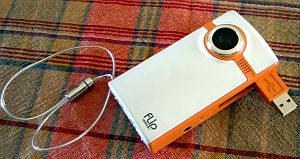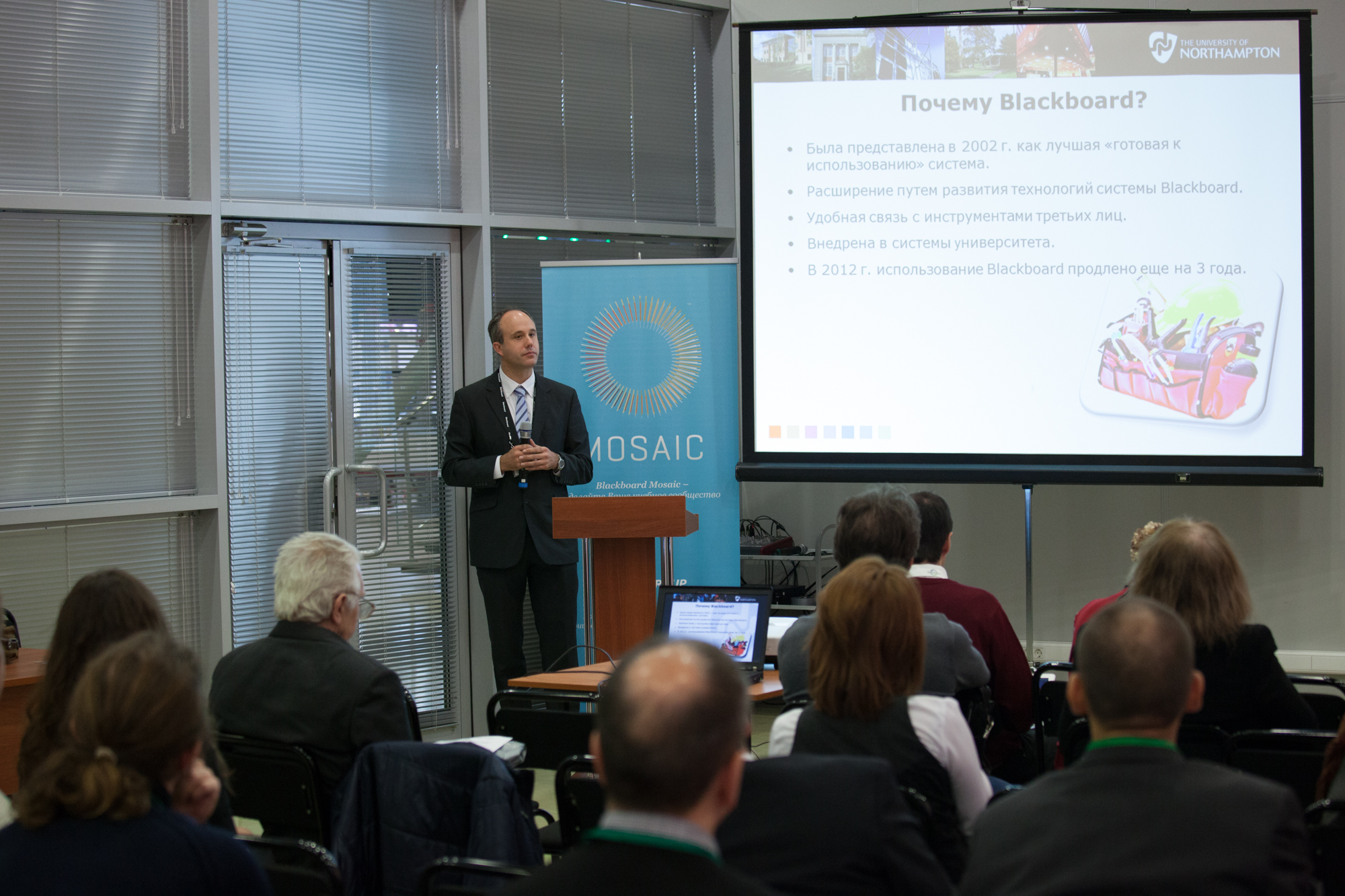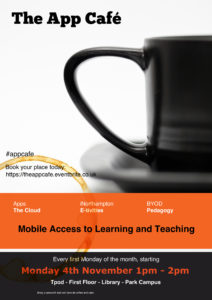The inaugural meeting of LUNAR@LLS (LUNchtime Academic Reading) took place on Friday 25th October. As someone who has only been to social reading groups before, I was pleasantly surprised at how easy the conversations and discussions flowed in this more academic context and how emotional I found myself getting about some of the points that were discussed! (Yes, weird I know!)
For staff who weren’t there (but who are nevertheless interested in what we discussed), here is a short summary of the key points …
The three papers were Chapters 3, 9 and 13 of Oblinger, D. G. (2006) Learning Spaces (available as a free e-book):
- Chapter 3. Seriously Cool Places: The Future of Learning-Centered Built Environments by William Dittoe (View: HTML | PDF)
- Chapter 9. Trends in Learning Space Design by Malcolm Brown and Phillip D. Long (View: HTML | PDF)
- Chapter 13. Assessing Learning Spaces by Sawyer Hunley and Molly Schaller (View: HTML | PDF)
Dittoe’s paper followed a hypothetical scenario where student living and learning environments were seamlessly entwined. While initially the idea of turning up to a day of learning ‘experiences’ in your slippers (and presumably your onesie!) initially sounded quite attractive, there were feelings of being cocooned and isolated away from the real world. However, the flexible and creative use of spaces, offering quiet reflection, social involvement and social learning, active engagement with learning materials and the presence of tutors in the learning (as opposed to teaching) environment suggest an environment vastly different to that currently experienced in most HE settings. The author cited Kuh’s key features for this type of learning space as being a space that encourages student-tutor interaction and one which permits a high degree of effort on academic tasks.
Brown and Long considered trends in learning space design, adopting a constructivist approach that focusses on the whole campus as a potential learning space and where the focus on the learner provides an environment for people that fundamentally changes current approaches to teaching and learning. Their three main trends were: (1) Design based on learning principles resulting in intentional support for social and active learning strategies; (2) Emphasis on human-centred design; and (3) an increasing ownership of diverse devices that enrich learning. With my learning technology hat on, the discussion in both these chapters on device agnosticism and the fact that although the technology will change between now and our move to Waterside, the way in which we learn won’t, mirrors the discussions that we have been having as a team in recent months.
The focus on the learner requires a fundamental shift however from a teacher-centric, pedagogical approach to teaching and the delivery of information that may well be better obtained elsewhere, to a learner-centred approach that encourages individuals to take increased ownership of their own learning journey and where the tutor is but one tool among many that the learner can draw upon in order to further and deepen their own learning. It presupposes a collaboration between architecture and technology and the provision of a seamless, robust IT infrastructure and also requires that classroom spaces are built with a defined client base in mind in order to prevent the development of spaces that meet no-one’s needs optimally.
Hunley and Schaller adopted an assessment-based approach to the topic of learning spaces, comparing both formal and informal learning in terms of environment, time, structure and content, as well as looking at the interaction between people and their environments. They assessed the need for learning spaces by the level of student engagement. Academic engagement was shown to be enhanced where the environment is comfortable, open flexible and appealing and decreased in more formal settings. They concluded that a balanced approach between the two was still required and that the key was good assessment design of learning spaces with the enhancement of student learning being the ultimate goal.
So … having briefly summarised the papers, what did we actually talk about?
Not surprisingly, our discussions did focus considerably on the implications of the move to Waterside where there will be around 40% less space. There was a strong recognition of what has been achieved in the library as it currently is, with lots of different learning spaces and this idea of a learning commons (hopefully still called a Library) remaining at the heart of the new campus, with learning taking on a more social aspect and becoming more informal.
Probably the single most important strand was around the extent to which there would need to be a culture change for academic staff around space, its use and ownership, the corollary being a considerable change in pedagogy. In this regard, a recent article that I read by Thomas Cochrane and Vickel Narayan from AUT University in Auckland, New Zealand, had some interesting insights particularly in considering how staff transform their role, moving from a heavily pedagogical approach, through andragogy, to heutagogy (student-directed learning). This requires lecturers to undergo a reconceptualization of their role and to take advantage of the mobility offered by the various Web 2.0 tools (including Twitter, blogs, wikis and Skype etc). For more on this article, please read my (first ever) blog posting!
The implications of this change do need to be considered as soon as possible, and steps taken sooner rather than later to enable staff to grow into this new approach, providing them with the confidence to learn new approaches and to try things out because, ultimately, space really does matter to people.
If you would like to come along to LUNAR, it is held on the last Friday of every month* from 1-2pm in the Tpod in the Library at Park. You can bring your lunch and tea and coffee is provided.
Suggestions for papers to read prior to the next meeting on Friday 29th November are still needed. We would like to explore topics of interest for each of the teams within LLS so if you have some ideas of hot topics (even if you don’t have any actual papers to read) please let me know.
*December’s meeting will be on Friday 20th as we will all be on holiday on the 27th!
Hope to see you there!

Introduction
Faith Tucker used Flip Cameras to record interviews as part of a mock interview exercise. Here’s how she incorporated their use into her module and her observations after the event.
The exercise
Final year Geography students undertake a mock interview exercise during the autumn term as part of GEO3030 Geographers at Work. This module, which focuses on career planning and employability skills, incorporates an application exercise. Students are asked to complete a covering letter and application form for a graduate-level job. Following this, they are interviewed for the post. The interview is chaired by an experienced interviewer (someone from a local business or a senior member of University staff), with the panel made up of other members of the class. All students have the opportunity to be interviewed and take on the role of interviewer, enabling them to learn about both sides of the interview process.
Flipcams are used to record each interview. The small size of the camera helps to make the videoing process unobtrusive. Each interviewee gets a copy of their video to help them review their performance. It also acts as an aide-mémoire: at the end of the academic year students complete a reflective report in which they review their learning from the entire module, and the video provides useful reminders about the interview experience. Feedback from recent graduates reveals that some have also used the video in preparation for interviews for real jobs.
Post-exercise observations
- the cameras were very easy to use;
- it was quick and easy to download the videos;
- the quality of the sound was a bit variable (you need to be quite close to the camera for quiet voices to be picked up effectively, which wasn’t always possible in this exercise).
 On the 31st October, 2013, Rob Howe was invited to Education 3.0 in Moscow to present on the strategic development of Learning Technology at The University of Northampton.
On the 31st October, 2013, Rob Howe was invited to Education 3.0 in Moscow to present on the strategic development of Learning Technology at The University of Northampton.
Rob was the only speaker from the UK and joined speakers from leading Russian institutions: FEFU, KAI, LGU, MISiS, and Ural Mining to an audience of Rectors, Provosts, Heads of IT.
The forum was part of a major education exhibition, hosted by the Ministry of Education of the Russian Federation, Government of Moscow and the Moscow Department of Education. The goal was to enhance the access to, and quality of, education through public-private partnership, promoting international best practices that will boost the personal and professional development of individuals.
The Russian government has earmarked £178 million to enable its leading national universities to break into the top 100 in the global league tables. Vladimir Putin, Russia’s president, announced plans that would see at least five of the country’s universities enter the top 100 by 2020. Education 3.0 was part of a number of events which are encouraging institutions to be more innovative in their outlook.
Rob’s presentations were developed in both English versions and Russian versions to cater for the audience at this event and an interpreter was used throughout.

There was a real interest in the Learning Technology work and developments at Northampton including our Changemaker status…..and surprisingly a question on the Northampton clown during the drinks reception ! As a result of the presentations, Northampton has already had requests for greater collaboration and potential sharing of resources between ourselves and Russian institutions.
Al Holloway, Learning Technologist at University of Northampton talks to School of Health staff member Angie Bartoli on her use of Twitter for collaboration and communication in the field of social work.
 We are often asked in CAIeROs where to obtain images that are licensed for use in material that could be part of an Open Resource. There is nothing worse than having to pick out images from a potential OER because of copyright problems. This article on Zembl is a really useful guide to where you can find suitable images.
We are often asked in CAIeROs where to obtain images that are licensed for use in material that could be part of an Open Resource. There is nothing worse than having to pick out images from a potential OER because of copyright problems. This article on Zembl is a really useful guide to where you can find suitable images.
http://zembl.com/news/blogs/2013/11/15-places-get-free-images-your-elearning
Al Holloway, Learning Technologist at University of Northampton talks to School of Education lecturer Helen Caldwell on her use of Edublogs for student portfolios.
In this forth episode Al Holloway, Learning Technologist at University of Northampton talks to School of Education staff member Jean Edwards on her use of WordPress for student communication.
In this third episode Al Holloway, Learning Technologist at University of Northampton talks informally to School of Health lecturer Anne Segalini on her use of Google Sites.
Providing Mobile Access to Learning and Teaching
The Learning Technology team are pleased to announce a new monthly lunchtime event for all staff at the University of Northampton.
With more and more people accessing the internet via mobile devices, The App Cafe provides an opportunity to look at the implications of mobile devices and apps in HE and how we can better use them in learning and teaching. This first App Cafe will look at the top five essentials for going mobile and consider some different apps that you can start to use easily in a learning and teaching context.
We want to hear from you. This is a participative ‘by you, for you’ event with an opportunity each month to share the apps you already use in the classroom with fellow staff across all disciplines.
With take-aways like ‘Your 5-a-month’ (top apps for learning and teaching), coffee and even cake, this is one lunchtime event in LLS you shouldn’t miss.
First Monday of the month, starting 4th November 2013 | 1-2pm | in the TPod, Park Library
Book your place by signing up today: https://theappcafe.eventbrite.co.uk
We hope to see you there!
Following the NILE upgrade over the summer, some NILE sites have been responding badly to the use of styles and the menu area has changed to black on black. Blackboard are aware of the issue and will fix it in a subsequent upgrade.
In the interim, if you find your site affected, follow these steps:
1. Open the Site Manager, customisation, site style menu item
2. Chose a contrasting background or type in ‘dedede’ into the code value box for a standard ‘NILE Grey’ background.
3. ‘Submit’ to save changes
Apologies for the inconvenience – we will make another posting or announcement when this is fixed.
Recent Posts
- Blackboard Upgrade – January 2026
- Spotlight on Excellence: Bringing AI Conversations into Management Learning
- Blackboard Upgrade – December 2025
- Preparing for your Physiotherapy Apprenticeship Programme (PREP-PAP) by Fiona Barrett and Anna Smith
- Blackboard Upgrade – November 2025
- Fix Your Content Day 2025
- Blackboard Upgrade – October 2025
- Blackboard Upgrade – September 2025
- The potential student benefits of staying engaged with learning and teaching material
- LearnTech Symposium 2025
Tags
ABL Practitioner Stories Academic Skills Accessibility Active Blended Learning (ABL) ADE AI Artificial Intelligence Assessment Design Assessment Tools Blackboard Blackboard Learn Blackboard Upgrade Blended Learning Blogs CAIeRO Collaborate Collaboration Distance Learning Feedback FHES Flipped Learning iNorthampton iPad Kaltura Learner Experience MALT Mobile Newsletter NILE NILE Ultra Outside the box Panopto Presentations Quality Reflection SHED Submitting and Grading Electronically (SaGE) Turnitin Ultra Ultra Upgrade Update Updates Video Waterside XerteArchives
Site Admin







